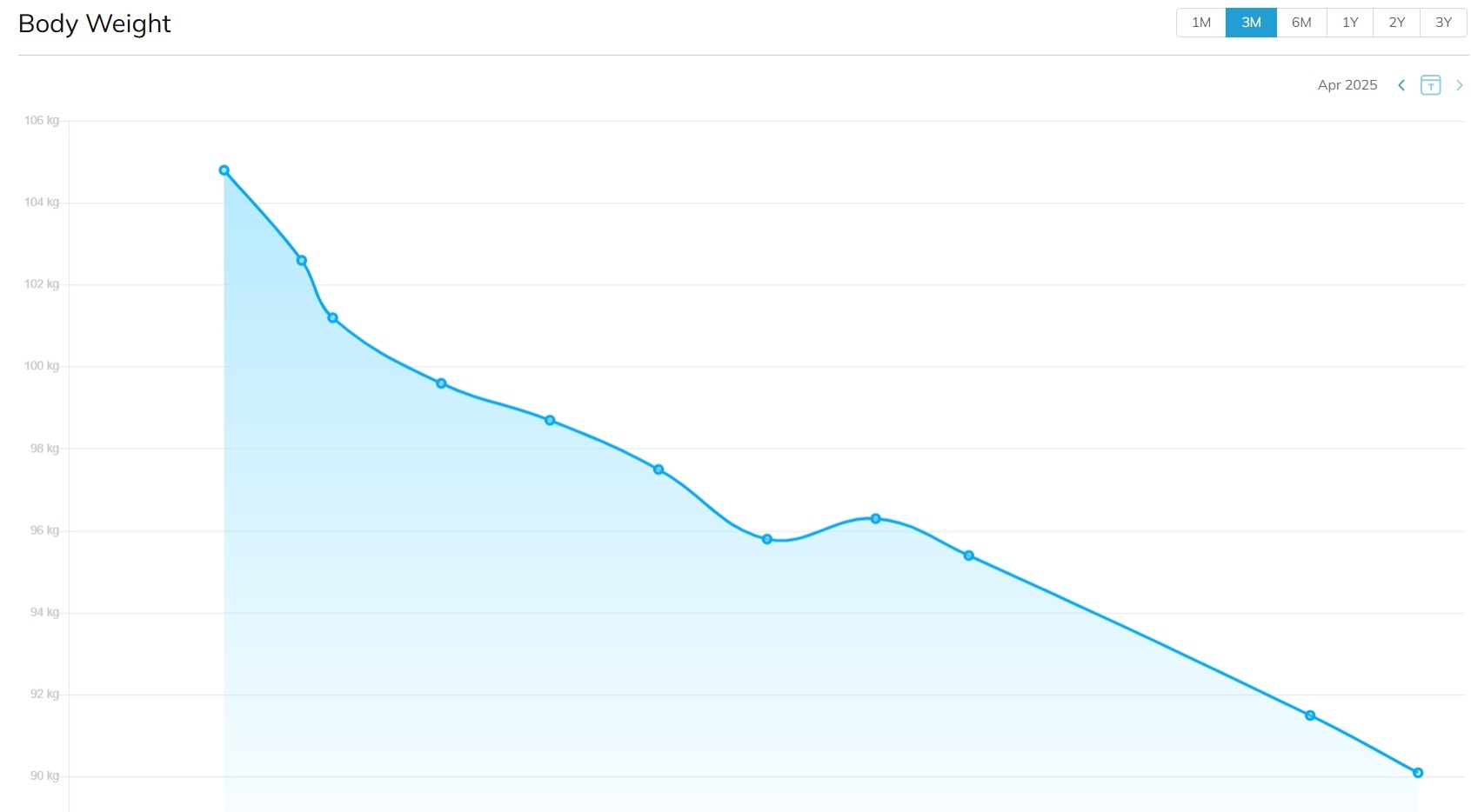
10 Tips to Make You Harder to Kill When You Have a Heart Condition
You can find lot’s of content from ex-security services types describing the skills you need to defend yourself from bad guys that want to kill you, so you are hard to kill. It’s partially behind the growth of Jiu-Jitsu, as who doesn’t want the capability to over power an assailant and strangle them till they pass out?
This post isn’t about that as the reality is the chances of being killed by an assailant are very low, but there are much more dangerous killers out there.
According to the World Health Organisation (WHO) the biggest killers in the world are all related to your heart click here to read the report. The three biggest killers are:
-
Ischaemic heart disease
-
Strokes
-
Chronic obstructive pulmonary disease
In high to medium income countries this holds true, but in the poorest countries the biggest killer is neonatal conditions in children, then heart issues in adults.
It is two years since I started my recovery from a Ischaemic heart condition and I’m still alive. As a large proportion of the readers of this post will probably experience a heart condition sometime in the future. I’m sharing the 10 tips I learnt that will make you harder to kill if you do experience a heart condition.
All personal experiences are unique so take from this what you will. What you should note is I have a strength, that you may not have that could help you.
About 10 years ago I was at a PwC team building event at the London Olympic white water park. There was two parts to the day. The first was a Strength Finder psychological test and the second was a white water rafting experience. So the day would be either fun or deeply traumatic if you don’t like personal reflection or dangerous water.
Strength Finder is a test that identifies the psychological themes that you are strongest at, your default approach to engaging with people and problems. You do a survey to identify your strengths, then as a team share them so everyone can understand what each person is good at and how playing to each person’s strengths, can form a diverse and effective team.
What I remember about the day, apart from seeing three of my team get flipped out of the raft and disappear into the rapids for an uncomfortable amount of time was that in a room of over 100 people I had one strength no one else had.
That strength is Deliberative. To quote the Strength Finder book - Deliberative people know that the world is unpredictable and dangerous. Rather than walking across it and regretting the mistakes you have made, you prefer to take a step back, look at your route and see what could possibly go wrong. You believe that the best way to deal with crisis and risks is prevention. Having evaluated all its pros and cons, this helps to minimise risk. This gives you a peace of mind and confidence in your plans.
I knew very early in my life that men on both sides of my family, have suffered and died from heart problems. Seeing that risk, I have consistently focused on my health in preparation for the day the risk caught up with me. It did at the end of 2021, but I had invested in building my preventative capabilities and that paid off as despite being seriously ill I recovered and I’m still improving two years on.
If you don’t have a deliberative strength you will probably not do the preventative recommendations as you don’t focus on future risks, but at least you now know what they are.
If you are deliberative then preventative actions will minimise the risk. A study just published in the British Medical Journal click here to read it identified a healthy lifestyle could offset effects of life-shortening genes by 62% and add as much as five years to your life. The “optimal lifestyle combination” for a longer life was found to be “never smoking, regular physical activity, adequate sleep duration and healthy diet”.
I got two of those right as I have never smoked and have always done regular exercise.
5 Preventative tips that made me harder to kill
Having high cardiovascular fitness and being used to working at peak heart rates enabled me to function when I had less than 20% of my heart functioning. Being cardiovascular fit even with impaired heart capacity means your body is more efficient utilising the limited oxygen it is receiving.
-
Build muscle
Through diet and strength training I had maximised lean muscle mass. Your heart feeds all your other organs and the limited oxygen will cause them to stop working properly which affects your metabolic system resulting in rapid weight loss. A lot of muscle mass will be lost, I lost 8kg of body weight in about 6 weeks, most of that muscle. The more muscle you start with the more will be remaining, so you have the physical strength to recover.
-
Learn to be resilient
The one organ you can’t survive without is your heart. It is a scary experience when it is affected and the lack of heart capacity makes everything you do hard. I have done hard physical and dangerous activities e.g. mountaineering, so I’m not afraid to be uncomfortable and can handle difficult, scary challenges that you get with a serious heart condition. You will need to be very resilient to just get out of bed every morning and face some very difficult medical procedures and medication regimes.
-
Control what you eat and drink
As the BMJ report suggests lifestyle factors have a big impact on your risk. Even if you think your are healthy you will still need to make changes. To be both preventative and make recovery easier avoid too many dependency consumption habits e.g. smoking, drinking alcohol above recommended amounts, high processed food diets. You will need to give them up to survive, you might as well not be dependent on them now. I had purposefully avoided smoking and drinking alcohol so didn’t have that dependency, although my love of snacks and pizza has been much harder to give up.
-
Save for a rainy day
You will be impacted immediately by a heart condition and will take a long time to recover. If you check your employer’s sickness policy (assuming you even have one) you will probably find the sick pay doesn’t cover the period you will be unable to work. In my case after 12 weeks there was no sick pay. It has taken over 2 years to feel well enough to work again, so assume you need rainy day money of up to two years to cover your financial commitments as being sick and worried about paying bills is not a good combination. I had made that provision so didn’t have that worry which I think would have made survival and recovery much more difficult as I would have been compelled to try and keep working when I wasn’t fit to.
5 Survival tips that made me harder to kill
When you get a heart condition you get very dependent on medical professionals. They are very good at stabilising patients but once you are out of danger they aren’t very good at helping you recover. So don’t be passive and request recovery services and find medical professionals who specialise in recovery or you will be left in a state of coping but not thriving.
-
Use cognitive behavioural therapy to stay in the fight
When you are in survival mode it is more a mental battle than a physical one. You will get support from family and some friends but you will need more than that to mentally stay in the fight. I was offered mental health support early on and found Cognitive Behavioural Therapy (CBT) immensely beneficial as the approach took me out of the present and focused me on the goals for the future. The physical improvement from having a positive mindset and a clear vision of why I wanted to survive, accelerated my recovery.
-
Use the time to learn
Any heart condition leaves you physically less capable, but you can still use the one thing that isn’t affected, your brain. Use your recovery time to learn new skills and knowledge, this fills time, creates opportunities and can create a new long term purpose. I found when being seriously ill you are very internally focused on how you feel, which can create stress and worry. By learning and studying it focuses you on the external world which distracts from the concerns about your physical state.
-
Synchronise your medication with your nutrition
For heart conditions medication is essential but it has lots of side effects. To get the most out of the medication the synchronisation of when you take them and what food or drink you consume has a big impact on how the common side effects impact you.
Don’t be passive when handed medication ask a pharmacist when is the best time to take them, in combination with all the drugs you have to take and what food to avoid.
In my case I became really ill after eating baked potatoes two days in a row. They hadn’t told me that high potassium food in combination with a drug I was taking would significantly reduce my blood pressure. So now I don’t eat high potassium food, especially potatoes.
-
Re-build confidence in your physical capabilities with exercise
Use exercise to build your confidence and health as well as prove to yourself that you can still have a quality of life to enjoy. Exercise will only do you good mentally, physically and physiologically but with the fear created by a heart condition and the drugs that control heart rate it can be really difficult.
Find a suitably qualified personal trainer to help you re-start your exercise journey. Last year I got qualified as an exercise referral PT which is an advanced qualification on how to support clients exercise effectively and safely with chronic health conditions, including heart conditions . I did the qualification to support my business but also I found when I worked with a PT they didn’t have the knowledge about my heart conditions I hoped they had to make me feel safe.
Do the research and find a PT that is qualified as exercise is the best recovery drug you can take.
If you do get a heart condition get mental health and exercise support, they are the best recovery drugs available.
There is a big killer out there and you need to develop a Deliberative preventative mentality to make you harder to kill, because Jiu-Jitsu is not going to save you.


